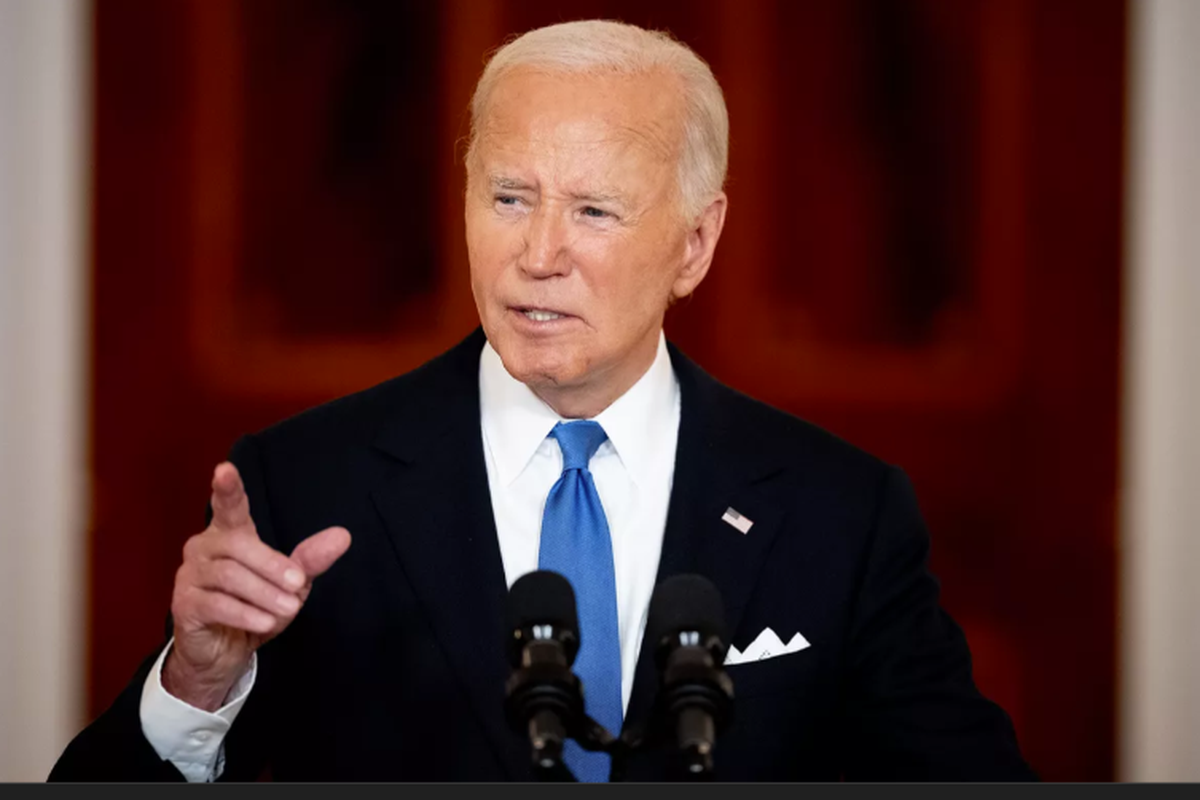This column reflects the opinion of the writer. Learn about the differences between a news story and an opinion column.
Spin Control: Open Democratic National Convention could be a dream or nightmare

Minutes after the June 26 presidential debate ended, television talking heads began speculating about every political pundit’s favorite fever dream: an open national political convention.
By this, they don’t mean a convention like an “open meeting,” which anyone might view either in person or on television. Political conventions are really all about television, where daily events are broadcast from beginning to end, with predictions each morning on what’s scheduled to happen and the kind of rumination each evening on that day’s events that cows with their four-chambered stomachs might envy.
An open or “brokered” convention is one in which the results of the nomination vote are unknown at its start, creating uncertainty as to whom the party’s presidential candidate will be. Because the nation’s 50 states and various territories have spent the previous six months holding primaries and caucuses to award delegates to various candidates – and even pundits can do that math with the help of giant computer screens on which they can color in counties or precincts and draw circles with magic pens – the result is no more a mystery than a basketball game between Gonzaga University and a high school junior varsity team, with the final score only slightly in doubt.
For as long as many of the nation’s pundits have been alive, and definitely as long as the vast majority have been covering politics, no national political convention has convened without a candidate having enough delegates to secure the nomination. The party rules, and the fact that candidates who lose in early primaries find themselves without the money to continue, make that almost impossible and fraught with problems.
Pundits still hope against hope for scenarios that would allow them to experience something that was once routine but for all practical purposes went extinct in the 20th century, sort of the political version of the passenger pigeon. When I was the newspaper’s full-time political reporter, I shared that hope every four years with my editors when trying to get them to pay for trips to the national conventions. They routinely refused on the grounds the money could be better spent elsewhere.
President Joe Biden seemed to fan the embers of those hopes into a fire near the end of last Thursday’s news conference. Responding to a question about whether his pledged convention delegates who are having second thoughts are “free to vote their conscience,” he seemed to suggest an opening to an open convention.
“Obviously they’re free to do whatever they want,” Biden said. “And so, tomorrow, if all of a sudden, I show up at a convention and everybody says, ‘We want somebody else,’ that’s the democratic process.”
But then he threw some cold water: “It’s not going to happen.”
Actually, delegates are not free to do whatever they want. At least, not on the first ballot, which since the 1950s has been the only ballot needed to select a nominee.
The Democratic Party process – the national rules set down for how delegates are picked and how they vote – makes that difficult. As Rule 13J says, “Delegates elected to the national convention pledged to a presidential candidate shall in all good conscience reflect the sentiments of those who elected them.”
The “in all good conscience” phrase, which the reporter used in asking her question, is discussed in a detailed examination of open conventions of the past and speculation of the prospects for an open convention in August by Elaine Karmarck of the Brookings Institute.
The more important clause in the rule, however, seems to be “reflect the sentiments of those who elect them.” Absent another primary, how might a delegate from Washington or any of the other 49 states determine those sentiments as being against Biden – and if they are, with whom might those sentiments lie?
Beyond that, some states have laws that require a pledged delegate to vote for that candidate for at least the first ballot, and sometimes later ballots depending on how well he or she does. Washington has no such law, but the state Democratic Party requires all delegates to follow national rules.
So as long as Biden remains in the race, it would seem the vast majority of the 3,896 delegates he collected – about 99% of those available, as the primaries were essentially uncontested – would have to vote for him. And he needs only about half of those, or 1,968, to get the nomination.
If Biden were to drop out – rules call for a written notice, but a televised statement might suffice – delegates would be free to vote for someone else, although again presumably someone who reflects the sentiments of those who elected them. Because the primaries weren’t contested, there’s no real second choice that delegates could fall back on.
Biden insisted several times he wasn’t dropping out, although he hinted vaguely at the prospect of stepping away if someone could convince him that Vice President Kamala Harris has a better chance of beating Donald Trump. But there’s no rule that allows him to transfer his delegates automatically to Harris.
While an open convention might be the dream of many pundits, it could be the worst nightmare for top party officials. The last time a sitting president stepped away from his re-election race and none of his possible replacements arrived at the Democratic National Convention with a majority of pledged delegates collected in primaries or caucuses was … an inauspicious model.
That was the 1968 convention in Chicago, known more for riots in the streets outside than speeches and pageantry inside the hall. The person nominated at the convention, Vice President Hubert Humphrey, lost. The convention rules were changed to prevent a repeat by requiring more pledged delegates tied to primary or caucus results and less back-room dealings by party bosses.